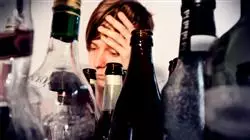University certificate
The world's largest faculty of medicine”
Introduction to the Program
This university program brings you closer to the advances in the treatments applied to patients suffering from gas poisoning"

Social and economic changes influence the presence of intoxicated persons in the emergency department. Apart from the control and prevention measures in consumer products, there are individual behaviors associated with leisure that lead to alcohol poisoning or drug overdose, especially in the youth population group. Likewise, drug abuse by people with mental disorders is also notable in the Emergency department. Two scenarios, where the medical professional must be aware of the most consumed substances, their effects on the body and the therapeutic approach.
Therefore, emetics, gastric lavage, activated charcoal, forced diuresis or alkaline diuresis are the techniques of absorption or purification of toxins most commonly used by medical professionals, who, however, must be up to date with the advances made in the diagnoses and treatments currently used in patients who have suffered poisoning by heavy metals, pesticides or medical devices. In this scenario, TECH has developed a Professional master’s degree that will allow students to delve into Emergency Toxicology in a dynamic manner.
The multimedia teaching resources that make up the syllabus of this university program will favor the medical professionals who seek to update their knowledge in a visual and agile way. Accordingly, the program will delve into the most frequent poisonings, as well as the products, food or animals that cause the mildest to the most serious poisonings. This program will also delve into the protection measures of health care personnel, as well as the most relevant legal aspects of toxicological care.
This Professional master’s degree is, therefore, an excellent opportunity for professionals who wish to update their knowledge through an exclusively online and flexible format, which will allow them to balance their medical functions with a university education. With no classroom attendance or fixed class timetables, students who take part in this program will only need an electronic device with an Internet connection to access the complete syllabus hosted on the virtual campus. Additionally, the Relearning system, used by this academic institution in all its programs, reduces the long hours of study that are so common in other teaching methods.
TECH provides you with all the necessary tools to update your knowledge in Toxicology in an agile and comfortable way"
This Professional master’s degree in Emergency Toxicology contains the most complete and up-to-date scientific program on the market. Its most outstanding features are:
- The development of practical cases presented by experts in Toxicology
- The graphic, schematic, and practical contents with which they are created, provide scientific and practical information on the disciplines that are essential for professional practice
- Practical exercises where the self-assessment process can be carried out to improve learning
- Its special emphasis on innovative methodologies
- Theoretical lessons, questions to the expert, debate forums on controversial topics, and individual reflection assignments
- Content that is accessible from any fixed or portable device with an Internet connection
The library of educational resources will immerse you in synthetic drug intoxication so that you are aware of their effects on the patient"
The program’s teaching staff includes professionals from the sector who contribute their work experience to this program, as well as renowned specialists from leading societies and prestigious universities.
Its multimedia content, developed with the latest educational technology, will allow the professional a situated and contextual learning, that is, a simulated environment that will provide an immersive education programmed to prepare in real situations.
The design of this program focuses on Problem-Based Learning, in which the professional will have to try to solve the different professional practice situations that will arise throughout the academic course. For this purpose, the student will be assisted by an innovative interactive video system created by renowned experts.
Delve into prolonged latency syndromes in a much more engaging way thanks to the multimedia content of this university program"

You can access the most exhaustive syllabus on the most common toxidromes in the Emergency Department."
Why study at TECH?
TECH is the world’s largest online university. With an impressive catalog of more than 14,000 university programs available in 11 languages, it is positioned as a leader in employability, with a 99% job placement rate. In addition, it relies on an enormous faculty of more than 6,000 professors of the highest international renown.

Study at the world's largest online university and guarantee your professional success. The future starts at TECH”
The world’s best online university according to FORBES
The prestigious Forbes magazine, specialized in business and finance, has highlighted TECH as “the world's best online university” This is what they have recently stated in an article in their digital edition in which they echo the success story of this institution, “thanks to the academic offer it provides, the selection of its teaching staff, and an innovative learning method aimed at educating the professionals of the future”
A revolutionary study method, a cutting-edge faculty and a practical focus: the key to TECH's success.
The most complete study plans on the university scene
TECH offers the most complete study plans on the university scene, with syllabuses that cover fundamental concepts and, at the same time, the main scientific advances in their specific scientific areas. In addition, these programs are continuously being updated to guarantee students the academic vanguard and the most in-demand professional skills. In this way, the university's qualifications provide its graduates with a significant advantage to propel their careers to success.
TECH offers the most comprehensive and intensive study plans on the current university scene.
A world-class teaching staff
TECH's teaching staff is made up of more than 6,000 professors with the highest international recognition. Professors, researchers and top executives of multinational companies, including Isaiah Covington, performance coach of the Boston Celtics; Magda Romanska, principal investigator at Harvard MetaLAB; Ignacio Wistumba, chairman of the department of translational molecular pathology at MD Anderson Cancer Center; and D.W. Pine, creative director of TIME magazine, among others.
Internationally renowned experts, specialized in different branches of Health, Technology, Communication and Business, form part of the TECH faculty.
A unique learning method
TECH is the first university to use Relearning in all its programs. It is the best online learning methodology, accredited with international teaching quality certifications, provided by prestigious educational agencies. In addition, this disruptive educational model is complemented with the “Case Method”, thereby setting up a unique online teaching strategy. Innovative teaching resources are also implemented, including detailed videos, infographics and interactive summaries.
TECH combines Relearning and the Case Method in all its university programs to guarantee excellent theoretical and practical learning, studying whenever and wherever you want.
The world's largest online university
TECH is the world’s largest online university. We are the largest educational institution, with the best and widest online educational catalog, one hundred percent online and covering the vast majority of areas of knowledge. We offer a large selection of our own degrees and accredited online undergraduate and postgraduate degrees. In total, more than 14,000 university degrees, in eleven different languages, make us the largest educational largest in the world.
TECH has the world's most extensive catalog of academic and official programs, available in more than 11 languages.
Google Premier Partner
The American technology giant has awarded TECH the Google Google Premier Partner badge. This award, which is only available to 3% of the world's companies, highlights the efficient, flexible and tailored experience that this university provides to students. The recognition as a Google Premier Partner not only accredits the maximum rigor, performance and investment in TECH's digital infrastructures, but also places this university as one of the world's leading technology companies.
Google has positioned TECH in the top 3% of the world's most important technology companies by awarding it its Google Premier Partner badge.
The official online university of the NBA
TECH is the official online university of the NBA. Thanks to our agreement with the biggest league in basketball, we offer our students exclusive university programs, as well as a wide variety of educational resources focused on the business of the league and other areas of the sports industry. Each program is made up of a uniquely designed syllabus and features exceptional guest hosts: professionals with a distinguished sports background who will offer their expertise on the most relevant topics.
TECH has been selected by the NBA, the world's top basketball league, as its official online university.
The top-rated university by its students
Students have positioned TECH as the world's top-rated university on the main review websites, with a highest rating of 4.9 out of 5, obtained from more than 1,000 reviews. These results consolidate TECH as the benchmark university institution at an international level, reflecting the excellence and positive impact of its educational model.” reflecting the excellence and positive impact of its educational model.”
TECH is the world’s top-rated university by its students.
Leaders in employability
TECH has managed to become the leading university in employability. 99% of its students obtain jobs in the academic field they have studied, within one year of completing any of the university's programs. A similar number achieve immediate career enhancement. All this thanks to a study methodology that bases its effectiveness on the acquisition of practical skills, which are absolutely necessary for professional development.
99% of TECH graduates find a job within a year of completing their studies.
Professional Master's Degree in Emergency Toxicology
The daily exposure to multiple xenobiotics that represent serious adversities for health reminds us why toxicology should be an essential axis in the curricular domain of physicians. The pathogenesis of serious biological alterations is not only due to viruses or infections, the plurality of physicochemical interactions that various substances or elements have in the body, to the point of causing a hospital emergency, make it necessary to deepen this branch of medicine. The Professional Master's Degree in Emergency Toxicology is a completely online training proposal focused on achieving this objective. Using sophisticated pedagogical dynamics and telematic tools that optimize learning, we specialize in shaping the program towards a highly competitive role. Through thirteen modules, we will teach you in a rigorous way so that you can give accurate diagnoses (identifying the different harmful components) and effective treatments to patients with toxicological syndromes that require medical emergencies. Are you looking to qualify yourself with high standards and expand your work spectrum? You've come to the right place.
Get your online program in emergency toxicology.
"Dosis sola facit venenum": the dose makes the poison. Words of the physician and alchemist Paracelsus that constitute the primary aphorism of toxicological sciences. Not only the type of substance or chemical determines the effects on the organism, but also the dosage. Belladonna, for example, is a plant that has several pharmacological applications serving as an antispasmodic and anticholinergic, but it also contains tropane alkaloids that are dangerously toxic to people, producing hallucinations, motor incoordination, convulsions, tachycardia and even death. Accessing our postgraduate course you will learn not only about intoxications with this species in our section of hallucinogenic plants, but you will also learn about toxicology in drugs of abuse to treat overdoses. Likewise, we will train you in other types of intoxication (drugs, industrial gases, solvents, animal venom) as well as the therapeutic management of the patient in its different phases. All this, in comfortable classes with autonomous schedules, exclusive multimedia content and advanced methodologies that will tell you why we are the best online university in the world.







